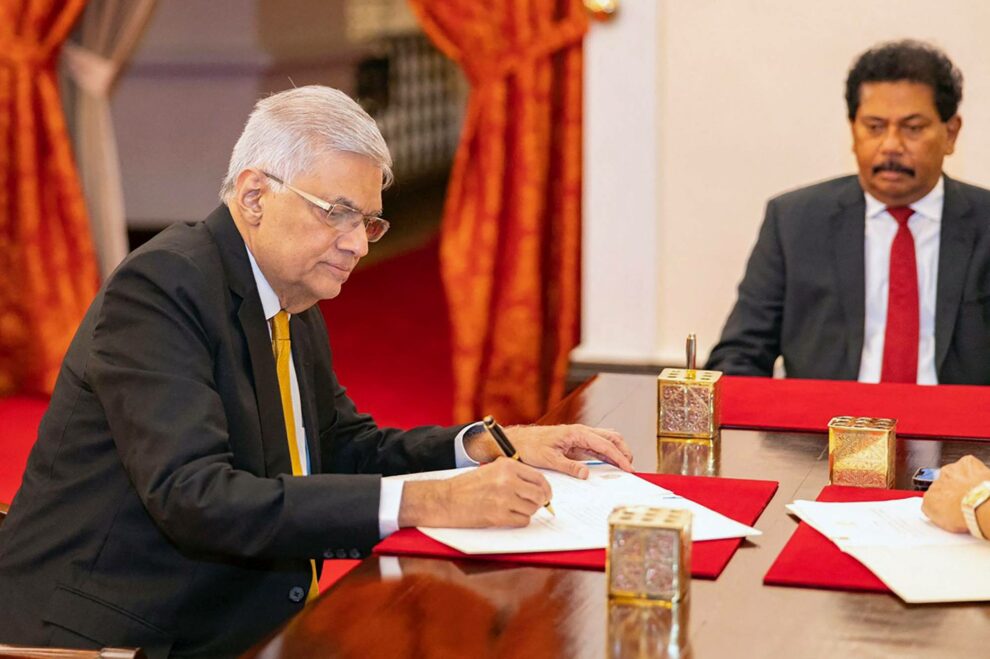Sri Lanka hopes to avoid repaying debt till December 2027 after the completion of the ongoing restructuring process and repay them in the period running up to 2042, President Ranil Wickremesinghe said on Wednesday, as he defended his unpopular reform plans to revive the bankrupt economy.
Sri Lanka is currently stuck with debt restructuring with negotiations taking a long to reach an agreement.
“By 2022, Sri Lanka had to meet external debt repayments worth 6 billion per year. It is 9.5 per cent of the GDP and an amount hard to sustain,” he said.
”We hope to reduce this to 4.5 per cent of the GDP by debt restructuring”, Wickremesinghe, also the cash-strapped island nation’s finance minister, stressed.
“Currently we are actively engaged in discussions regarding the restructuring of all loans including domestic and foreign loans. We are optimistic that these negotiations will reach a successful resolution soon. Our goal is to obtain temporary relief from debt defaults from 2023 to 2027. Subsequently, we plan to diligently work towards repaying the loans in the period from 2027 to 2042”.
He said if the country was able to maintain the economic momentum gained since 2022 after the economic crisis, the state revenue could be maintained at a higher level making it easy for the debt repayment.
He said through his unpopular hard economic reforms the state revenue collection had been raised to 11 per cent of the GDP.
“For this, we had to impose Value Added Tax (VAT) which was a very painful decision to make. It was a tough decision but to overcome this economic ailment we have to suffer temporarily”.
Wickremesinghe said despite hardships the country has reached a degree of stability.
”The critics say despite stability the people don’t feel it, people have been made to suffer heavy tax burdens, electricity and fuel prices have been raised to make them unbearable for the public,” he said.
He said the current success was due to the planning jointly made with the International Monetary Fund (IMF) to bring in economic stability.
Sri Lanka in the second quarter of 2022 had declared bankruptcy announcing the island’s first ever sovereign default.
Negotiations with the IMF for a bailout began almost immediately and the first tranche of the USD 2.9 billion facility was released in March 2023.
The IMF under its bailout facility over 4 years has compelled Sri Lanka to set in hard reforms to revive its bankrupt economy. Total Central Government external debt as of the end of December 2023 amounted to USD 37.3 billion, according to the Ministry of Finance.
According to the Central Bank of Sri Lanka, the top three bilateral creditor countries are China, 43 per cent, Japan 23 per cent and India 15 per cent. Additionally, there are international sovereign bondholders who represent 85 per cent of the commercial debt category. In April 2022, Sri Lanka declared its first-ever sovereign default since gaining independence from Britain in 1948.
The crisis led Wickremesinghe’s predecessor Gotabaya Rajapaksa out of office through a campaign of public agitation. Wickremesinghe stepped in to fill in Rajapaksa’s remaining term till 2024.









